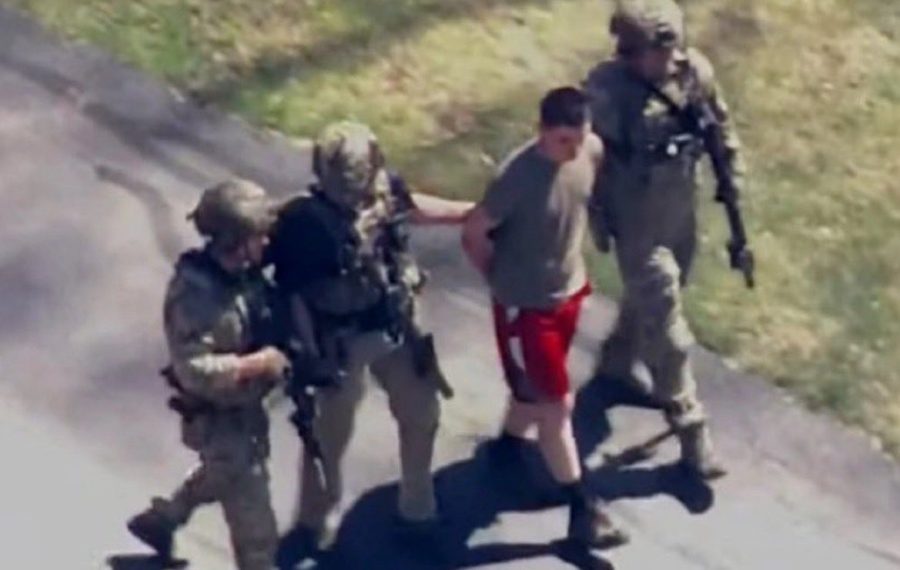Classified Information Leaks Expose America’s National Insecurity
An unprecedented amount of attention is being directed towards America’s national security. Whether it’s the multiple Chinese spy balloons flying well beyond the continental United States, or the Pentagon finding itself penetrated by a 21-year-old leaker, it’s becoming abundantly clear that U.S. national security is under attack from threats both foreign and domestic.
While President Joe Biden has remained mum on the implications of shooting down one of the aforementioned spy balloons, the aftermath of former Massachusetts Air National Guardsman Jack Texeira’s Pentagon leaks are too loud to ignore. Specifically, the 21-year-old leaked classified information which exposed key vulnerabilities in Ukraine’s defense against Russia’s ongoing invasion. They also shone a light on China’s blooming relationship with Russia, as President Xi Jinping allegedly eyes military action to invade and take down Taiwan.
Texeira is hardly the first or likely last case of U.S.-classified information being leaked. From Julian Assange’s WikiLeaks to Edward Snowden’s NSA leaks, the act of leaking information has come under a microscope that continues to polarize the country. What remains specifically polarizing about this is the fact that with each individual scenario, there are supposed reasons. Snowden, who worked for the NSA, served as a whistleblower to expose the questionable degree of surveillance power America holds. Assange’s WikiLeaks provided insight into the U.S. military’s role in the previously undisclosed murders of Afghan citizens while the wars in Iraq and Afghanistan raged on. It even continues to be argued that Assange’s leaks were not crimes, but rather journalism. While both scenarios serve as rightful lightning rods of conversation both for and against the act of leaking, Texeira’s has unequivocally put the U.S. and its allies in danger.
Where Snowden wanted to expose American surveillance and Assange sought to highlight American military malfeasance, Texeira claims he leaked classified information from the Pentagon to his Discord friends because he wanted to educate them on the experience of war. Such an act cannot rationally be validated because, as he attempted to supposedly “educate” his friends online, he inadvertently educated America’s adversaries overseas regarding the weaknesses of the free world. Texeira is not working as a whistleblower in an act of civil disobedience to educate the country on its systemic wrongdoings, nor is he officially acting as a foreign agent to aid foreign governments. Rather, he is serving as the embodiment of youthful naivety, and it is important that the country understands that his stupidity cannot afford to be conflated with bravery. Because of Teixeira, both Ukraine and Taiwan’s defenses have been compromised, which could lead to countless more lives being lost. Additionally, his leaks have jeopardized diplomatic relations between the United States and South Korea.
While most cases of leaking end in plea deals, Texeira should be imprisoned for the remainder of his life. Every year that he should serve would be symbolic to the lives his carelessness has cost our country, as well as those overseas. The act of leaking classified U.S. information is already a conceptually gray area, and Texeira has irreparably tainted it. Whistleblowers and leakers alike could, to some degree, serve as agents of civil disobedience to raise awareness of acts of American misconduct — inspiring meaningful dialogues about the relationship between the country and its constituents. Texeira’s actions were an act of American misconduct because they exposed international vulnerabilities that stand to be exploited by the likes of Russia, China and even Iran.
Texeira’s leaks also somehow manage to send an even more sinister message to our adversaries — incompetence. Specifically, Russia and China may come to the realization that the United States is more vulnerable than it appears to be simply due to the fact that our nation’s greatest secrets are being supposedly safeguarded by America’s youngest citizens in 21-year-olds who tend not to know the damage their actions could cause.
Texeira’s actions most definitely should be raising questions with regards to the ages of who our country is placing its trust in, as it seems questionable that college kids are in positions to play games with America’s national insecurity.
Noah Osborne, FCRH ’23, is a journalism major from Harlem, N.Y.










































































































































































































